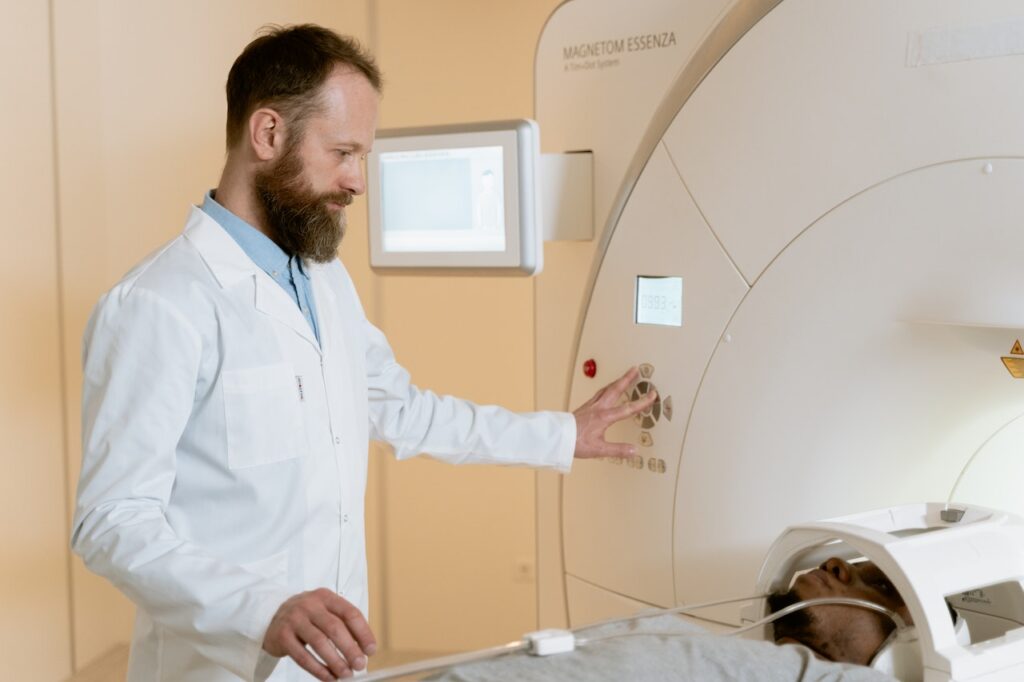Visiting a nephrologist can be a crucial step in managing kidney-related health issues. Nephrologists are specialized doctors who diagnose and treat kidney diseases and disorders. However, the cost of seeing a nephrologist can be a concern for many patients.
The cost of seeing a nephrologist can vary depending on several factors, including the type of insurance a patient has, the location of the doctor’s office, and the complexity of the patient’s medical condition. Patients with insurance coverage may have lower out-of-pocket costs, while those without insurance may have to pay more. Additionally, the cost of tests and procedures ordered by the nephrologist can also add to the overall cost of treatment. Keep reading to learn how much does it cost to see a nephrologist.
Understanding Nephrology
Nephrology is a branch of medicine that focuses on the diagnosis, treatment, and management of kidney-related diseases and disorders. A nephrologist is a medical doctor who specializes in nephrology and is trained to treat various kidney conditions, including chronic kidney disease, kidney stones, and kidney failure.
To become a nephrologist, one must first complete medical school and then complete a residency in internal medicine. After completing their residency, aspiring nephrologists must undergo additional training in nephrology through a fellowship program. During this training, they learn how to diagnose and manage various kidney-related conditions, including dialysis and kidney transplantation.
To become board-certified in nephrology, a physician must pass a rigorous examination administered by the American Board of Internal Medicine. This certification ensures that the physician has met the highest standards of knowledge and expertise in the field of nephrology.
Interventional nephrology is a specialized area within nephrology that involves the use of minimally invasive techniques to diagnose and treat kidney-related conditions. This may include procedures such as kidney biopsies or the placement of dialysis catheters.
Transplant nephrology is another specialized area within nephrology that involves the management of patients who have undergone kidney transplantation. Transplant nephrologists work closely with transplant surgeons and other healthcare professionals to ensure the best possible outcomes for transplant patients.
Overall, seeing a nephrologist can be an important step in managing kidney-related conditions. While the cost of seeing a nephrologist may vary depending on factors such as location and insurance coverage, the expertise and specialized training of a nephrologist can be invaluable in ensuring the best possible outcomes for patients with kidney-related conditions.
Role of a Nephrologist
A nephrologist is a medical doctor who specializes in the diagnosis and treatment of kidney-related diseases and disorders. They play a crucial role in managing kidney health and providing care for patients with kidney problems such as kidney stones, infections, and kidney failure.
Nephrologists are experts in the renal system, which includes the kidneys, ureters, bladder, and urethra. They are trained to diagnose and treat a wide range of kidney diseases and issues, including kidney cancer, urinary tract infections, and kidney dialysis.
Patients with kidney disease or kidney failure require ongoing care and monitoring, and nephrologists provide this care through regular check-ups and tests. They also work closely with other healthcare professionals, such as urologists, to provide comprehensive care for patients with kidney-related issues.
Nephrologists also play a crucial role in kidney transplant procedures. They evaluate potential donors and recipients, manage patients before and after transplant surgery, and monitor the health of the transplanted kidney.
Overall, the role of a nephrologist is to provide expert care and management of kidney-related diseases and disorders. They work closely with patients to develop personalized treatment plans that address their unique needs and help them maintain optimal kidney health. The type of treatment and treatment length will factor into how much it costs to see a nephrologist.
Symptoms and Diagnosis
When a person experiences symptoms related to their kidneys, they may need to see a nephrologist. Some common symptoms of kidney problems include blood in the urine, proteinuria, urinary tract infections, and swelling in the legs, ankles, or feet. Other symptoms may include fatigue, high blood pressure, and changes in the frequency or amount of urine.
To diagnose kidney problems, the nephrologist will start by taking a detailed medical history and conducting a physical exam. During the physical examination, the doctor may check for signs of fluid buildup, such as swelling in the legs or abdomen. They may also listen to the patient’s heart and lungs, and check their blood pressure.
Blood and urine tests are often used to help diagnose kidney problems. Blood tests can measure levels of creatinine and blood urea nitrogen (BUN), which are waste products that build up in the blood when the kidneys are not functioning properly. Urine tests can detect the presence of protein or blood in the urine, which can also be signs of kidney problems.
Imaging tests, such as ultrasounds, CT scans, and MRIs, may also be used to diagnose kidney problems. These tests can help the doctor see the size and shape of the kidneys, as well as any abnormalities or blockages.
In some cases, a kidney biopsy may be necessary to diagnose a kidney problem. During a kidney biopsy, a small piece of tissue is removed from the kidney and examined under a microscope.
Overall, a nephrologist will use a combination of medical history, physical examination, blood and urine tests, imaging tests, and biopsies to diagnose kidney problems and develop an appropriate treatment plan.
Treatment Options
When it comes to treating kidney disease, there are a variety of options available. The choice of treatment will depend on the stage of the disease, the patient’s overall health, and other factors such as age and lifestyle.
Medications
In the early stages of kidney disease, medication may be prescribed to help control blood pressure, reduce proteinuria, and slow the progression of the disease. Some common medications used to treat kidney disease include ACE inhibitors, angiotensin receptor blockers (ARBs), and diuretics.
Dialysis
For patients with end-stage renal disease (ESRD), dialysis may be necessary to filter waste products from the blood. There are two types of dialysis: hemodialysis and peritoneal dialysis. Hemodialysis involves using a machine to filter the blood, while peritoneal dialysis uses the lining of the abdomen to filter the blood.
Transplant
For some patients with ESRD, a kidney transplant may be an option. This involves receiving a healthy kidney from a donor. Kidney transplants can come from deceased or living donors, and the success rate of the procedure is high.
Overall, the cost of seeing a nephrologist will depend on the type of treatment required. Medications may be relatively inexpensive, while dialysis and transplant can be more costly. However, with proper treatment and management, many patients with kidney disease are able to lead full and healthy lives.
Conditions Treated by Nephrologists
Nephrologists are specialists who diagnose and treat kidney disorders. They are trained to manage various conditions that affect the kidneys, including kidney disease, kidney failure, kidney stones, chronic kidney disease, cystic kidney disease, polycystic kidney disease, kidney cancer, and more.
One of the most common conditions treated by nephrologists is high blood pressure, which is a leading cause of kidney disease. They also manage diabetes and heart disease, which are other risk factors for kidney damage. In addition, nephrologists can help patients with autoimmune diseases that affect the kidneys, such as lupus nephritis.
Nephrotic syndrome and glomerulonephritis are two other kidney disorders that nephrologists treat. Nephrotic syndrome is a condition where the kidneys leak protein into the urine, while glomerulonephritis is a type of kidney inflammation that can lead to kidney damage.
Nephrologists also monitor glomerular filtration rate (GFR) and creatinine levels to assess kidney function. They may order blood tests to measure creatinine and blood urea nitrogen levels, as well as electrolyte levels, which can be affected by kidney disease. Anemia is another common complication of kidney disease that nephrologists may address.
Overall, nephrologists play a critical role in the management of kidney disorders and related conditions. Their expertise can help patients maintain kidney function and prevent complications associated with kidney disease.
Referral and Consultation
When a patient suspects they have a kidney-related issue, they may seek out a referral from their primary care physician. The referral is a request for a consultation with a nephrologist, a specialist in kidney diseases.
The primary care physician will typically evaluate the patient’s symptoms and medical history to determine if a referral to a nephrologist is necessary. If the physician deems it necessary, they will provide a referral to the patient.
Patients can also choose to see a nephrologist without a referral, but this may not be covered by insurance, and the patient may be responsible for the full cost of the visit.
It is important to note that a referral from a primary care physician may not always be required by insurance companies, but it is always recommended to check with the insurance provider to ensure coverage.
In some cases, a urologist may also provide a referral to a nephrologist, as both specialties deal with kidney-related issues. However, a referral from a primary care physician is typically the most common route to see a nephrologist.
Overall, the cost of a consultation with a nephrologist will vary depending on a variety of factors, including insurance coverage, location, and the complexity of the patient’s medical condition. It is recommended that patients check with their insurance provider and the nephrologist’s office to determine the cost of the consultation before scheduling an appointment.
Cost Factors
The cost of seeing a nephrologist can vary depending on several factors. Here are some of the cost factors to consider when seeking care from a nephrologist.
Insurance Coverage
One of the most significant factors that can impact the cost of seeing a nephrologist is insurance coverage. In the United States, most insurance plans cover visits to a nephrologist, but the amount that patients have to pay out of pocket can vary significantly. Patients should check with their insurance provider to determine what their coverage entails and what their out-of-pocket expenses will be.
CT Scans and Other Diagnostic Tests
Nephrologists may need to order diagnostic tests to diagnose and monitor kidney conditions. These tests can include CT scans, ultrasounds, and blood tests. The cost of these tests can vary depending on the type of test and where it is performed. Patients should check with their insurance provider to determine what tests are covered and what their out-of-pocket expenses will be.
Location
The location of the nephrologist’s office can also impact the cost of care. In some areas, the cost of living is higher, which can result in higher healthcare costs. Patients may want to consider seeing a nephrologist in a less expensive area if possible.
Severity of Condition
The severity of the patient’s kidney condition can also impact the cost of care. Patients with more severe conditions may require more frequent visits and more extensive treatment, which can result in higher costs. Patients should discuss their treatment options with their nephrologist to determine the best course of action for their condition.
Follow-Up Care
Patients with kidney conditions often require ongoing care and monitoring. The frequency of follow-up visits can vary depending on the patient’s condition and the treatment plan. Patients should discuss their follow-up care with their nephrologist to determine the frequency of visits and associated costs.
Overall, the cost of seeing a nephrologist can vary depending on several factors. Patients should discuss their treatment options and associated costs with their nephrologist and insurance provider to determine the best course of action for their condition.
Frequently Asked Questions
Where can one find a nephrologist near them?
One can find a nephrologist near them by asking their primary care physician for a referral, searching online for local nephrology clinics, or checking with their insurance provider for a list of in-network nephrologists.
What kinds of tests are typically done during a nephrology consultation?
During a nephrology consultation, a nephrologist may order blood and urine tests, imaging studies such as an ultrasound or CT scan, or a kidney biopsy if necessary. These tests help the nephrologist to diagnose and monitor kidney function.
At what stage of kidney disease should one consider seeing a nephrologist?
It is recommended to see a nephrologist when an individual has stage 3 or higher chronic kidney disease, or if they have risk factors such as diabetes or high blood pressure.
What happens during a first visit to a nephrologist?
During a first visit to a nephrologist, the patient will typically undergo a physical exam and provide a medical history. The nephrologist may also order tests to assess kidney function and discuss treatment options if necessary.
How much does a typical nephrology consultation cost?
The cost of a typical nephrology consultation can vary depending on factors such as location and insurance coverage. Patients should check with their insurance provider for information on coverage and out-of-pocket costs.
What is the difference between a nephrologist and a general practitioner when it comes to kidney health?
While general practitioners are trained to manage a wide range of health conditions, nephrologists specialize in kidney health and are trained to diagnose and treat kidney-related conditions. Nephrologists may also work with other healthcare providers to manage a patient’s overall health.





